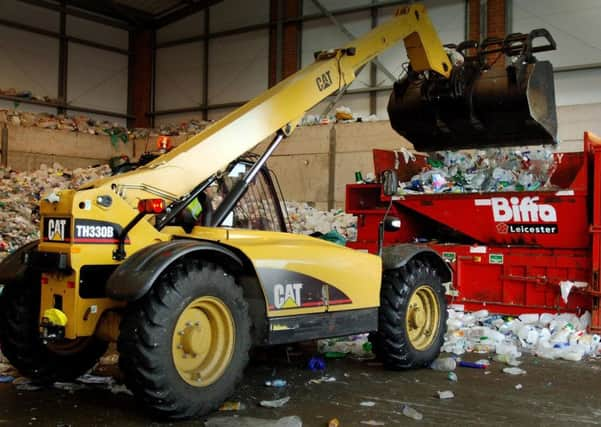Biffa reduces flotation price as IPO jitters continue
This article contains affiliate links. We may earn a small commission on items purchased through this article, but that does not affect our editorial judgement.


The Buckinghamshire-based firm, the second-largest of its kind in the UK, yesterday said it was continuing with the listing, which will raise about £262 million, having cut the price to 180p per share from the 220p to 270p range.
The move comes amid market volatility and flat investor demand hampering listings, and despite the period before next month’s US general election having been expected to offer a window for IPOs.
Advertisement
Hide AdAdvertisement
Hide AdMisys, the UK banking software business, recently cut the value of its proposed float by about £1 billion, which will make it struggle to enter the FTSE 100.
Among those shelving plans to list are fitness group Pure Gym, which had intended to raise £190m to fund its expansion, and vehicle parts manufacturer TI Fluid Systems putting the brakes on a €600m (£543m) flotation.
Additionally, recent data from accountancy giant EY found that UK public listings fell to six in the third quarter from 13 in the previous three months in the aftermath of the Brexit vote.
Biffa chief executive Ian Wakelin described its return to the London Stock Exchange as a “significant milestone” for the company and “testament to the hard work of all our staff”.
He said the listing, which values the company at £450m, “is an endorsement of Biffa’s business model, strategy, track record and prospects”. Wakelin added that the company, which was founded in 1912 and serves 2.4 million households with more than 7,000 staff, is “well-placed to exploit structural changes in the UK waste market, leveraging its diversified and integrated operations right across the country.
“Biffa will continue its disciplined approach to capital allocation and to capturing further operational efficiencies by optimising its systems and processes.
“We welcome our new shareholders and look forward with confidence to the next stage in the development of Biffa as a public company.”
Biffa believes the UK waste market will continue to grow rapidly, by about 5 per cent a year, to be worth £18.5bn by 2020, driven by the country’s rising population and household growth. It wants to tap into the market further and snap up smaller players, having already made 20 acquisitions worth £53.4m since December 2013.
